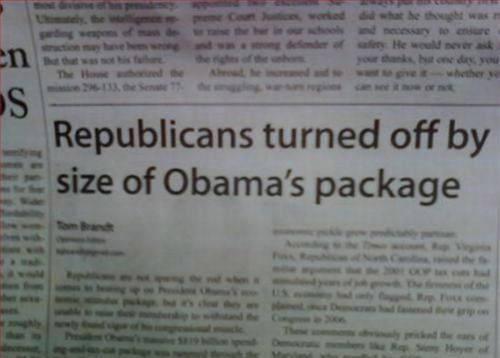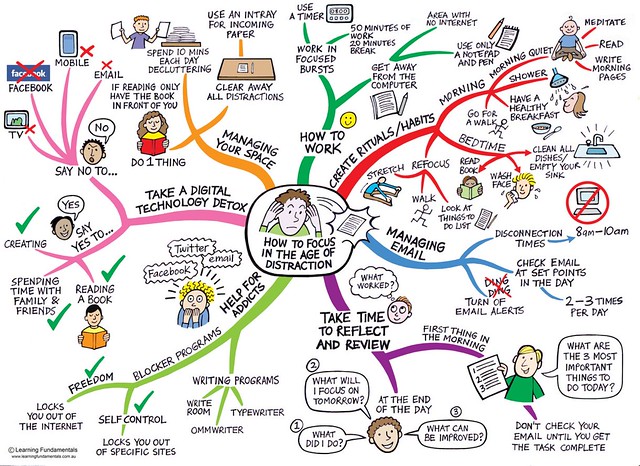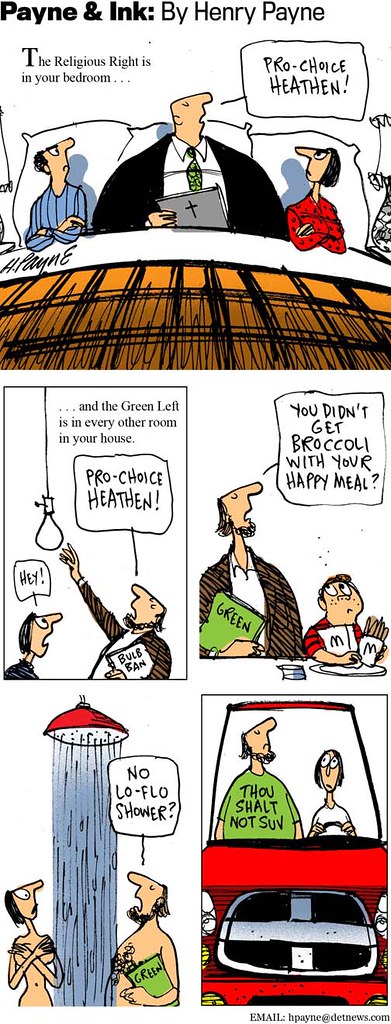Friday, September 30, 2011
Judge Roy Obama
We can be thankful that Anwar al-Awlaki is having his first pork weenie roast in Hades, having been whacked like Sonny Corleone in the toll booth scene in Godfather I, and that the Obama administration continues to green light successful strikes against high-value terrorist targets. Amen to that.
The wrinkle in this strike is that the late Mr. al-Awlaki was an American citizen, as Michael Hirsh writes in the National Journal.
Still, the strike was the first that was known to be launched against an American (Awlaki had dual Yemeni-U.S. citizenship). The nature of Awlaki's death once again raised legal and moral issues about the evidence against him, whether he was given due process of law, and the constitutional basis of the administration's covert strike program.So, we can infer that President Obama, who used to teach constitutional law, who campaigned on closing Gitmo and assuring U.S. voters that "we are better than that," with respect to all of the bad international things that the Bush administration did, gave an order to deny due process to an American citizen in the purest way possible -- by ending his life without a trial. (Or, did I miss something -- was he tried and convicted in abstentia?). Hence, the Judge Roy Bean reference.
In my view, President Obama did the right thing as President of the United States, even if such an action further alienates him from his base, just as he is trying to rally his base politically in the run up to the 2012 election. We shall see how much noise is made about this incident from certain segments of President Obama's party.
(20) Comments
Fog
For Everyone Else Raised By Nickelodeon
(0) Comments
Thursday, September 29, 2011
"Dear Human"
More "unintended" consequences
Pay attention, your government is costing you money in the name of "reform."
The federal government has enacted regulations under the Dodd-Frank Act that control the prices that banks may charge merchants for debit card transactions, cutting them on average by roughly 50% (from about $0.44 per transaction to $0.24, in the case of Bank of America). The aggregate dollars are not small; the new regulations have opened up an estimated $6.6 billion revenue gap for the biggest card issuers.
Predictably and obviously, the banks are doing their job and casting around for ways to recover that lost fee income. To that end, Bank of America has announced that beginning next year it will charge its own depositors $5 per month for the privilege of using debit cards to buy things (but not to withdraw money from ATMs). Taking in to account the $0.20 per transaction "savings" imposed by the feds, BofA's proposed monthly fee will generate more revenue than has been lost in the case of any customer who uses his debit card for purchases fewer than 25 times per month. Other large banks are following suit.
Put differently, this little corner of Dodd-Frank has potentially extracted a multi-billion dollar transfer from debt card holders to merchants, with the banks earning a nice incremental vig along the way. Why, exactly, is this useful policy? What other idiocy lurks therein?
(13) Comments
Wednesday, September 28, 2011
Size matters
On my Facebook feed this evening, from one of my leftier FB friends (OK, my sister, so sue me):
While the headline makes clear that size does indeed matter, the text is too blurry for us to know in what respect it matters.
(4) Comments
Shameless Self-Promotion!
(5) Comments
Tuesday, September 27, 2011
Governor Awesome rocks the most recent polls
The GOP is alive with buzz that Ann Coulter's longstanding favorite -- New Jersey's governor Chris Christie -- may jump in to the race for the Republican nomination. And the money's there. According to the WaPo,
There’s no question that certain major donors — primarily in the New York and New Jersey area — are simply waiting for Christie to say “yes” to put an aggressive cash collection in place that would immediately make the New Jersey governor a force to be reckoned with on the fundraising front. No other potential candidate — including former Alaska governor Sarah Palin — could put together so much money so quickly.
Now comes news that Governor Awesome has rocked the most recent polls in the Garden State, surging to a 54% approval rating at a time when virtually no incumbent does nearly that well. Christie is running ahead of other Republicans -- not surprisingly, in this deep blue state -- and perhaps as much as ten points ahead of President Obama.
At least one thing is clear: With the possible exception of Mitt Romney, there is no candidate among the current crop of Republicans who has a high probability of taking apart Barack Obama in the debates. Christie is better on his feet than any of them.
The question, of course, is whether the ideological purists on the Republican right can stomach Christie. Since the right believes -- incorrectly, in my view -- that it can have it all (just as the left believed that in 2008), his main achievement might be to make Mitt Romney look more (acceptably) conservative.
(16) Comments
Rube alert
A "maxed out" Obama donor calls for an end to the "class warfare" rhetoric. A nice essay, missing only an admission of the accountability that the author then demands from government.
(3) Comments
The home court weakness of the GOP field
Michael Barone, who in his command of American political statistics is an American treasure, notes that the current crop of GOP presidential candidates has not run well in their home states, at least relative to other Republicans. In other words, if you were under the impression that our current choices are not particularly appealing, you are not necessarily a Democrat, liberal, or pinko.
The same, by the way, is not true of Chris Christie, Paul Ryan, or Mitch Daniels.
(3) Comments
Monday, September 26, 2011
Tabulations
I don't reboot my computer as often as I should, and right now have a huge number of open tabs. Rather than lose them to posterity, I hereby bequeath them to you, our loyal readers, in no particular order, along with the occasional comment.
"An accounting question: Is 'ass rape' a debit or a credit?" It is actually SFW, unless maybe if you work at Goldman Sachs.
An interesting report from Deloitte on federal taxes on individuals, looking at the likely direction of tax rates. The chart on page 2 particularly interesting.
More chartage: A brief history of health care spending since 1965. Fodder for both sides.
Since everybody should read some sloppy lefty thinking once in a while, I commend you to Joe Nocera's defense of the Solyndra financing.
A video for the age: Rick Perry dancing -- I shit you not -- with Orthodox rabbis. No matter how much you hate politics and politicians, there are always moments like these.
I have to admit, I grudging admire the diabolical genius of this publicity stunt, even if it is at the expense of Sarah and Todd Palin.
TTYL.
(2) Comments
Saturday, September 24, 2011
Bad government news from Princeton
A single article in Princeton's Town Topics brings all sorts of exciting news from the animal kingdom.
It seems that Princeton's deer population has doubled in just a year, and the herd is infected with a hideous cervine disease, "epizootic hemorrhagic disease." In my experience, the word "hemorrhagic" is always bad news. In a rare moment of candor, a member of the Princeton Township Committee actually admitted that it was "very unfortunate" that they had suspended their contract with the professional hunting firm White Buffalo.
Professional control of the huge deer herd in Princeton has been extremely controversial, largely because of a vocal -- and asinine -- group of animal rights activists going back at least a decade. The loonier of the local liberals would prefer that we thin the herd with ineffective and expensive contraception, our automobiles, and epidemics than through controlled shooting.
Fortunately, the political tide has turned a bit, and it looks as though Princeton will return to responsible management of its venison. And we can help the poor, too!
Committeewoman Sue Nemeth asked for clarification about what happens to the meat from hunted deer, and was told that after being handled by a USDA-approved butcher, it goes to Hunterdon and Warren County soup kitchens.
Apparently the soup kitchens in Princeton's Mercer County, which includes the relatively poor town of Trenton, do not want venison. The article does not say whether the obstacle was bureaucracy, logistics, or the culinary preferences of the beneficiaries.
Let's just hope they test the donated meat for that hemorrhagic business, because we surely don't need for any more of those hideous diseases to jump to primates.
(9) Comments
Happy birthday, Scott!
F. Scott Fitzgerald would have turned 115 today. Had he not, you know, died in 1940 or any year since then.
He led a great literary life -- the Wikipedia entry is more entertaining than most things you will read today. Fellow Tigers will appreciate that he died making "notes in his newly arrived Princeton Alumni Weekly." Considering This Side of Paradise, a helluva fitting way to go.
(1) Comments
Friday, September 23, 2011
Governor Awesome on urban education, and the word "screwed"
Rumor has it, New Jersey's Governor Chris Christie is "reconsidering" his decision not to run for president. He must have seen last night's Republican debate...
Part of me loves the idea, and another part hates it. We need Christie in New Jersey. For example:
Awesome stuff, if you care about effective government. My question, though: Will "screwed" play in Peoria?
Reminds me of a conversation I had just today with a nice woman from the heartland, who was particularly offended by the word "douchebag." Here in the Garden State, it is a totally acceptable and frankly mild term of opprobrium.
(17) Comments
Thorium Could Replace Gasoline
(8) Comments
Thursday, September 22, 2011
Doesn't anybody understand the Constitution?
Via Glenn Reynolds, a rather amazing case of local government oppression:
An Orange County couple has been ordered to stop holding a Bible study in their home on the grounds that the meeting violates a city ordinance as a “church” and not as a private gathering.
Homeowners Chuck and Stephanie Fromm, of San Juan Capistrano, were fined $300 earlier this month for holding what city officials called “a regular gathering of more than three people”.
Friendly reminder:
Congress shall make no law respecting an establishment of religion, or prohibiting the free exercise thereof; or abridging the freedom of speech, or of the press; or the right of the people peaceably to assemble, and to petition the Government for a redress of grievances.
The "free exercise" clause has applied to states since 1940, and the "freedom of assembly" clause has applied since 1937. The officials who are enforcing this ordinance should be impeached or, failing that, required to pay damages.
(13) Comments
A short note on the Troy Davis execution
There is a lot of complaining on the left about Georgia's execution of convicted cop killer Troy Davis, which went from proposed to actual last night after the United States Supreme Court declined to intervene. According to the New York Times, there was no physical evidence linking Davis to the crime, and the Savannah constabulary applied defective line-up procedures that substantially raised the risk that witnesses misidentified Davis. So Georgia may have just executed an innocent man, or at least one defectively convicted.
Oops. (Yeah, I'm a sociopath.)
Commentary
Capital punishment is one of those subjects about which my opinions outrage more or less everybody.
With two exceptions, I think capital punishment is bad policy. It is so sparingly and expensively applied that it does not deter most crimes. Or, rather, it is impossible to believe that the incremental deterrence is worth the cost. The "cost" is not just monetary, but also social. The minority who oppose capital punishment are so disgusted by it -- both in the abstract and because of the occasional execution of innocent people, by some reckoning the ultimate systemic injustice -- that we ought to ask whether the benefits (deterrence and the satisfaction in retribution) are worth the social division. Personally, I think they are not.
There are, however, those two nettlesome exceptions. I believe that the death penalty should be available for punishing people who kill law enforcement officers or hostages, and people who engage in violent insurrection against the United States.
In the first case -- killing cops, prison guards, and hostages -- you need the prospect of the death penalty to have something for negotiators to trade. Otherwise, there is (potentially) no reason for a prisoner not to kill a guard, or a trapped suspect not to shoot his way out of the house, or a kidnapper not to whack his hostage.
In the second case -- violent insurrection and terrorism -- the perpetrators have allies who might commit further violence to force the release of their imprisoned comrades. Government needs the option of killing people who have no reason to live, or whose only reason is to inspire more violence.
Of course, Troy Davis killed a police officer, so even if I had my way on the subject he would have been eligible for the death penalty. If he was wrongly convicted, then I ought to face up to the possibility that even in those limited cases in which I would make the death penalty available, our government might execute the wrong person.
Wrongful execution is tragic, no question about it. It is not necessarily more tragic than the murder of a cop, but it is right up there and in any case two wrongs do not make a right.
We know that the criminal justice system wrongly convicts many people. In the DNA era, new physical evidence has sprung something north of 100 death row inmates. Even allowing for the possibility that some of these condemned people may still have been guilty, it does seem likely that we convict a significant number of innocent people.
The question is whether the small but real possibility of wrongful conviction is a reason not to execute people, ever, under any circumstances. I think not. Many government policies kill innocent people, but we accept them because we know perfection is impossible and they advance some greater good. Innocent people die every day because the Food and Drug Administration has not approved drugs and devices that are available to patients in other wealthy and regulated countries, such as Canada, France and Germany. We accept those deaths because we -- or at least some of us -- believe that the FDA is avoiding other adverse consequences, including from drugs and devices that perhaps ought not be sold.
That said, the imperfection of government is not a reason to avoid better practices in the criminal justice system.
Which invites a question for my conservative friends: If we generally believe that government is incompetent and the heavy hand of the state inflicts a lot of collateral damage, why do you have such faith in prosecutors and police?
We ought to go to great lengths to avoid wrongful execution. Police and prosecutors have a special obligation. So do governors and presidents.
Which invites a question for my lefty friends.
If the execution of Troy Davis is such an obvious and profound injustice, why didn't President Obama commute his sentence? [UPDATE and CORRECTION: Because the pardon power does not extend to state crimes! Doh! Shoot me now.]
Release the hounds.
(35) Comments
Wednesday, September 21, 2011
Turban terrorism
Whatever one thinks of turbans as a sartorial matter, there is no doubt that they are a security risk:
An assassin with explosives hidden in his turban was ushered into the home of the head of Afghanistan’s peace process on Tuesday, embraced him and then exploded the bomb, killing him and dealing a potentially devastating blow to the effort to reconcile with the Taliban and end 10 years of war.
Friendly reminder:
As usual, the jihadis are all about lengthening the war and extending the killing:
The assassination of Burhanuddin Rabbani, the leader of Afghanistan’s High Peace Council and a former president, on the heels of a carefully planned attack on the American Embassy a week ago, underscored the fierce opposition of those who want to shatter the country’s tenuous stability and thwart its tentative steps toward peace.
No wonder we are building more secret bases for drone attacks.
(1) Comments
Tuesday, September 20, 2011
They said that if I voted for John McCain the United States would build secret bases for launching drone attacks...
...and they were right!
My favorite thing about Barack Obama is the enthusiasm with which he has embraced George W. Bush's foreign policy.
(9) Comments
David Brooks has an admission to make
Every liberal's favorite moderate Republican, David Brooks, has a confession to make:
I’m a sap, a specific kind of sap. I’m an Obama Sap.
Much as I like Brooks, this bit of reflection is not news to the conservative blogosphere. But wait, there's more:
When the president said the unemployed couldn’t wait 14 more months for help and we had to do something right away, I believed him. When administration officials called around saying that the possibility of a double-dip recession was horrifyingly real and that it would be irresponsible not to come up with a package that could pass right away, I believed them.
I liked Obama’s payroll tax cut ideas and urged Republicans to play along. But of course I’m a sap. When the president unveiled the second half of his stimulus it became clear that this package has nothing to do with helping people right away or averting a double dip. This is a campaign marker, not a jobs bill.
It recycles ideas that couldn’t get passed even when Democrats controlled Congress. In his remarks Monday the president didn’t try to win Republicans to even some parts of his measures. He repeated the populist cries that fire up liberals but are designed to enrage moderates and conservatives.
He claimed we can afford future Medicare costs if we raise taxes on the rich. He repeated the old half-truth about millionaires not paying as much in taxes as their secretaries. (In reality, the top 10 percent of earners pay nearly 70 percent of all income taxes, according to the I.R.S. People in the richest 1 percent pay 31 percent of their income to the federal government while the average worker pays less than 14 percent, according to the Congressional Budget Office.)
This wasn’t a speech to get something done. This was the sort of speech that sounded better when Ted Kennedy was delivering it. The result is that we will get neither short-term stimulus nor long-term debt reduction anytime soon, and I’m a sap for thinking it was possible.
RTWT.
(10) Comments
Monday, September 19, 2011
The Obama tax increases and the dishonesty of the "Buffett rule"
The Big Four accounting firm Deloitte has produced a fairly accessible summary of President Obama's tax proposals, most of which involve substantial increases. Some of them are quite reasonable notwithstanding their populist appeal -- even I do not understand the rationale for depreciating private passenger jets over five years but commercial jets over seven -- and others are asinine and destructive (see, e.g., the proposals for limiting the value of deferrals for foreign corporate taxes paid). I have no idea what to make of the energy tax proposals, which I do not understand, except that they seem calculated to raise energy prices, which Barack Obama seems to think is a good thing.
Now for the rant part.
The personal income tax items are well-telegraphed and unsurprising, but for the bolted-on "Buffett rule" proposal, which seems "fair" and is therefore a potential trap for Republicans. I myself am sympathetic to the idea -- virtually all of my income is taxed as employment compensation, so I naturally find it irritating to be lumped in with the self-hating richies who derive most of their income from dividends, capital gains, or "carried interest." My federal and state marginal rate (including Medicare tax) is 42% even before the expiration of the "Bush tax cuts" and the already-locked Obama hikes, so I do not consider myself lightly taxed. My marginal rate will be 49% to 50% if Obama passes his proposals, and the effective rate will not be far behind. Of course, none of that includes property taxes, sales and consumption taxes, regulatory fees, and my fully-burdened share of corporation taxes. Yeah, yeah, cry me a river, I know. But I refuse to believe I am a churl because I do not join the pro-tax chorus.
Point is, even if Obama gets his "Buffett rule," my marginal and effective rates will be a lot higher than Warren's. Warren says that he his "friends" should pay more taxes, and the president then uses the point to propose a policy that ropes in highly paid employees, virtually none of whom are (still) Buffett's "friends." The president and the Sage of Douchebaggery Omaha are disingenuously beating highly compensated (and therefore highly taxed) employees over the head with a straw man argument that the press does not understand, or chooses to elide. Either way, pardon me for resenting the intellectual dishonesty (and political ingenuity) of the "Buffett rule."
(7) Comments
As much as we have abused it...
...the United States dollar is still the safest store of wealth with enough aggregate liquidity to store, well, a lot of wealth.
We are being given a reprieve because Europe is such a fiscal/monetary disaster and everybody else is tiny (Switzerland), institutionally suspect (China), or committing demographic suicide (Japan). If you have a lot of money, you almost have to put it in to dollars. But that will change, probably suddenly and almost certainly with painful consequences for our standard of living and that of our children. We are wasting this moment at our peril.
(0) Comments
More evidence the New York Times does not understand Texas
The New York Times, for all its agenda-setting "newspaper of record" pretension, is startlingly parochial, especially when it comes to the middle of the country. See, e.g., the drawing accompanying Gail Collins' Sunday column, which was all about how Rick Perry is not just a Texan, but an "über Texan." In addition to the thinly-veiled Nazi reference -- Texas über alles, anybody? -- the column reeks of condescension -- George W. Bush was more Texan than his father, per Collins, "but his parents sent W. off to boarding school to erase some of the evidence." Apparently, however, neither Collins nor any of her layers of editors and fact-checkers understand the first thing about botany:
The Saguaro cactus comes from the Sonoran Desert, and does not grow in Texas.
CWCID: A Texan.
(8) Comments
Arcade Fire - ACL 2011
(0) Comments
Sunday, September 18, 2011
A few pictures from ACL Fest 2011
As previously reported, we (the TH Teenager -- who is now 20 -- and I) are having a wonderful time at this year's Austin City Limits Music Festival. A few pictures for those of you who have, or have not, been here in prior years.
Zilker Park, Austin, on Friday afternoon...
Electric Touch, at the Austin Ventures stage...
Cold Play!
Legal advice from above...
My Morning Jacket, which put on a spectacular show on Saturday night (yes, the heavy woman in the lower right foreground provided lyrics in sign language for all the deaf people who turned out to see My Morning Jacket -- she spent most of the time doing air guitar, which I took to be a filler for the long expanses of purely instrumental music)...
Princeton!
Your Blogger, the THT, and the THGF...
Maybe more later...
(4) Comments
News you can use: Lose weight and help the deficit!
When you socialize medicine -- as we have largely done with the hugely popular Medicare program -- everybody's health is a social issue. Expect to see many more stories like this one, quite possibly with accompanying regulatory intervention:
Rising chronic disease prevalence among Medicare beneficiaries, including new enrollees, is a key driver of health care spending. Randomized trials have shown that lifestyle modification interventions such as those in the National Diabetes Prevention Program clinical trial reduce the incidence of chronic disease and that community-based programs applying the same principles can produce net health care savings. We propose expanding a proven, community-based weight loss program nationwide and enrolling overweight and obese prediabetic adults ages 60–64. We estimate that making the program available to a single cohort of eligible people could save Medicare $1.8–$2.3 billion over the following ten years. Estimated savings would be even higher ($3.0–$3.7 billion) if equally overweight people at risk for cardiovascular disease were also enrolled. We estimate that lifetime Medicare savings could range from approximately $7 billion to $15 billion, depending on how broadly program eligibility was defined and actual levels of program participation, for a single “wave” of eligible people. In this context we propose that Medicare expand its new wellness benefit to include reimbursement for this and other qualifying behavior change programs.
In other words, you can help reduce the deficit by losing some weight and getting in to shape! Don't complain about the dysfunctional political class until you've done your part!
(See how annoying that is? Sadly, we made the decision to go down this path not in 2010 with Obamacare, but in 1965.)
(2) Comments
Friday, September 16, 2011
12 tips
The Texas drought of 2011
For those of you who have only heard of, and not seen, the great drought in most of Texas this year, take a look at this slideshow. It is very sobering.
A map of the damage, here.
(5) Comments
My whereabouts
Been running hard all week, but looking forward to an awesome weekend. I do, however, expect to post!
So, my question for your Friday afternoon diversion: Please answer (1) who you would prefer to win the Republican nomination, and (2) who will win the Republican nomination. Trying to get a sense of the readership -- all the easier to pander!
(25) Comments
Wednesday, September 14, 2011
Homestuck - Sburban Jungle
Monday, September 12, 2011
The carnage at Bank of America: What did Warren Buffett know and when did he know it?
In the largest single corporate layoff announcement this year, after the close of the market this afternoon Bank of America announced that it will eliminate 30,000 jobs -- 10% of its work force -- on top of the 6,000 already, er, synergized this year. And other financial firms are doing the same, if with less flair. If you hate bankers and their big incomes, this is your opportunity for schadenfreude. (Of course, all those hateful bankers require a lot of arguably innocent support staff that will also lose their jobs, but every class war has its civilian casualties.)
The Bank of America announcement comes less than three weeks after the Oracle's much-ballyhooed investment in that beleaguered institution. So here is my question: Did Warren Buffett invest in Bank of America because he knew these dramatic cuts were in the offing when other investors didn't, or did Buffett push Bank of America to slash the staff after he put his money in? Because it is pretty impossible to believe that this decision is wholly independent of Buffett's involvement.
I am not a judger -- for all I know, BofA CEO Brian Moynihan's testicular fortitude is all that stands between America's largest bank and oblivion -- but I would think that neither scenario is going to enhance Buffett's rep as the Democrats' second favorite billionaire.
(15) Comments
Focus!
Cartoonish advice for the easily distracted. (You know who you are...)
All things I know I ought to do, but actually do only occasionally. And besides, nowhere in there does it give advice about blogging.
CWCID: Ritholtz.
(2) Comments
In Case You Were Left Behind During The Rapture...
Have You Been Left Behind? from Rem Lezar on Vimeo.
(13) Comments
The Known Universe
Sunday, September 11, 2011
A short note on the anniversary
I have been away from television for several days, first visiting my daughter in Salt Lake City, then driving up I-15, then seeing my sister (who does not have television). Now I sit in a bar in Salt Lake City's airport, watching a moment of NFL. So I am quite underexposed to 9/11 anniversary coverage, and plan on staying that way. However, I did rather like the cover of The New Yorker, and wanted to pass it along.
Remember the fallen, and pray that our leaders have the wisdom to pursue and achieve victory.
(7) Comments
Saturday, September 10, 2011
The changing world of employment
The economics blog The Big Picture proposes that it really is different this time -- that technology is so transforming the economy that traditional macro economic solutions are not going to increase employment much.
We also maintain, however, at least some, if not much of the weakness, especially in the labor market, is structural and not cyclical. Take the U.S. Postal Service (USPS) as the poster child of the current problems plaguing the U.S. labor market. The USPS has 571,566 full-time workers making it the country’s second-largest civilian employer after Wal-Mart. It has eliminated 110,000 jobs in the past four years and according to the FT,During the next five years, the service plans to cut 220,000 staff – about 120,000 through lay-offs – and close up to 300 processing centres on top of plans to shutter up to 3,700 post offices released last month.
Now why is this? Not enough stimulus? Monetary policy too tight? Insufficient quantitative easing? To paraphrase James Carville, “It’s technology, stupid!” The rise of the internet, e-mail, and Twitter coupled with some piss poor management, which failed to adapt to the changing times, and the result is one of the nation’s largest employers facing bankruptcy and mass layoffs.
Borders Books Inc. is also in the process of liquidating the last of its stores, which will result in a final mass layoff of close to 11,000 employees. True, they failed because of “lack of demand” for their goods and services. But not because of cyclical forces that could be offset by fiscal and monetary expansion. The rise of the e-book, Kindle, and iPad shut them down.
The Shumpeterian “creative destruction” of one sector is not being equally and instantaneously offset by job creation in the sectors benefiting from technology. This takes time, retraining, political vision and strong leadership. Companies can’t hire enough software engineers in these fields because the current labor pool lacks the education, training and skills.
Policymakers must recognize the global economy is sitting at the elbow of an exponential curve in technological advances that is and will uproot everything from manufacturing to how we read our mail and books to how medical services will be delivered.
Read the whole thing. It is provocative no matter what your politics.
While the argument is interesting and even superficially compelling, the United States economy has been through astonishing economic transformation in the last, say, 130 years. See, e.g., this graph of the farm population, which over two generations went from roughly half the population to a tiny fraction:
I can't dig up a link, but in the first third or so of the 20th century domestic servants made up 20% or so of the labor force in the United States. It is a tiny fraction of that now.
Yet, all these people were ultimately absorbed in the United States economy, which always grew along with the change. The difference, though, was that things were (mostly) simpler then. The aggregate weight of local, state, and federal regulation was much, much, lighter, so both businesses and employees could change much more quickly. The West was still open, so people could pull up stakes and move to California or Oregon or Washington or Texas at relatively low cost, and land was cheap and plentiful and business was new and exciting and markets were blossoming. Yes, unemployment was tough and grinding, but Americans exploding in to a country seemingly bursting with possibility. It did not matter that entire categories of labor were essentially going away.
Some of these differences we cannot get back. California can never be empty again. But we can create the conditions for all sorts of new opportunities that will create growth and will absorb the workers who are now losing their jobs. The trick is to embrace the change rather than to stand in its way. If we used incremental federal spending to reduce the time it takes to obtain all the permits necessary to do any sort of activity -- whether from launching a medical device to building a new oil refinery to opening a new bar in downtown Princeton -- by say, 70%, the economy would explode with opportunity. Why? Two reasons. First, the return hurdles on any new project would collapse because, well, time is money. Second, the people who decide to launch new projects would not exhaust themselves merely contemplating the bureaucratic and regulatory obstacles. (Never underestimate -- as our current president apparently does -- the importance of morale in the creation of jobs.)
Of course, it is easier said than done to reduce aggregate permitting time by 70% -- the first step is to reduce the number of permits required -- but a president with the right attitude in an atmosphere of perceived crisis could get it done. Sadly, this president would have to replace virtually everybody he appointed to run the federal regulatory apparatus, but some president could make it happen, even at the state and local level (if we can coerce states in to raising the drinking age, we can certainly deny federal funds to any local government that takes more than 5 business days to issue a building permit).
Release the hounds.
(4) Comments
The problem with socialized media
The Public Broadcasting Service, it turns out, is more partisan and less intellectually honest than -- *cough* -- the New York Times. Compare the PBS transcript of President Obama's speech to the "newspaper of record."
What a joke. We should have taken away all its money a generation ago.
MORE: Laziness and bad editing may be the cause rather nefarious partisanship. Still not a reason to keep giving increasingly dear taxpayer money to PBS.
(0) Comments
Friday, September 09, 2011
Growing Up In a Post 9/11 World
(3) Comments
Sarah the populist
The New York Times is running an interesting op-ed about Sarah Palin and her anti-"large" populism. Here is the heart of it, but read it all:
She made three interlocking points. First, that the United States is now governed by a “permanent political class,” drawn from both parties, that is increasingly cut off from the concerns of regular people. Second, that these Republicans and Democrats have allied with big business to mutual advantage to create what she called “corporate crony capitalism.” Third, that the real political divide in the United States may no longer be between friends and foes of Big Government, but between friends and foes of vast, remote, unaccountable institutions (both public and private).
In supporting her first point, about the permanent political class, she attacked both parties’ tendency to talk of spending cuts while spending more and more; to stoke public anxiety about a credit downgrade, but take a vacation anyway; to arrive in Washington of modest means and then somehow ride the gravy train to fabulous wealth. She observed that 7 of the 10 wealthiest counties in the United States happen to be suburbs of the nation’s capital.
Her second point, about money in politics, helped to explain the first. The permanent class stays in power because it positions itself between two deep troughs: the money spent by the government and the money spent by big companies to secure decisions from government that help them make more money.
“Do you want to know why nothing ever really gets done?” she said, referring to politicians. “It’s because there’s nothing in it for them. They’ve got a lot of mouths to feed — a lot of corporate lobbyists and a lot of special interests that are counting on them to keep the good times and the money rolling along.”
Because her party has agitated for the wholesale deregulation of money in politics and the unshackling of lobbyists, these will be heard in some quarters as sacrilegious words.
Ms. Palin’s third point was more striking still: in contrast to the sweeping paeans to capitalism and the free market delivered by the Republican presidential candidates whose ranks she has yet to join, she sought to make a distinction between good capitalists and bad ones. The good ones, in her telling, are those small businesses that take risks and sink and swim in the churning market; the bad ones are well-connected megacorporations that live off bailouts, dodge taxes and profit terrifically while creating no jobs.
The punchline:
Strangely, she was saying things that liberals might like, if not for Ms. Palin’s having said them.
Commentary
While I am a self-identified corporate tool and oppose the criminalization or even demonization of business even when the target is Goldman Sachs or ExxonMobil, I completely agree that the largest multinationals are hardly spokesmen for American employers. Barack Obama's reliance for business advice on Jamie Dimon and Jeffrey Immelt is wrongheaded not because they are evil or dishonest, but because they are not dependent on the American market per se. Indeed, regulatory burdens fall less heavily on huge companies than small ones because big companies have the scale to absorb the incremental overhead. Therefore, regulation often serves to entrench market-leaders, who are rarely the firms who are adding incremental employees. Palin is right, therefore, that big business and big government are in something of a self-interested conspiracy. This has been true since the earliest days of big business in America, but it is intolerable when the economy is not growing and there are so many unemployed.
On the question of campaign finance "reform," the difference between the populist left and the populist right comes down to this: The populist left believes that we should limit the political rights of certain speakers that they disfavor (business, but not labor, environmental groups, advocates for world government, or the legacy media) because business speech will bend government to objectives with which the left disagrees. The populist right believes that (i) we should not disarm one side of any argument (and in any case the First Amendment forbids it) and (ii) some interest will "capture" just about any government expenditure, so it is important to keep government as small as possible.
Finally, I think the author's punchline -- that Palin says things that "liberals might like, if not for Ms. Palin's having said them" -- is slightly wrong. It would be more accurate by some margin if he replaced "liberals" with "Democrats." Today's liberals (as opposed to the old Left of days gone by) love huge institutions. See, for example, the reverence on the left for world government. Liberals -- but not all Democrats -- more or less believe that the foreign policy of the United States is not legitimate unless some international agency approves of it. More importantly, many of the issues that most vex liberals -- anthropogenic global warming, for example -- seem to require highly centralized solutions from the United Nations and similar undemocratic interventions. Many rank-and-file Democrats, on the other hand, are not big fans of the UN, either.
Finally, Glenn Reynolds archly observed that Palin's potential substantive appeal to certain Democrats explains "why it was so important to thoroughly demonize her right up front." Er, indeed.
Release the hounds.
(8) Comments
Schweddy Balls
Thursday, September 08, 2011
Hubbub over "Speechgate"
(9) Comments
Non-responseGate
This is the sort of strange logic that makes ordinary people think that Washington is populated by Pod People:
Democrats cried foul when Republicans chose not to hold a televised response directly after President Obama’s joint-session speech. House Minority Leader Nancy Pelosi, San Francisco Democrat, said, “The Republicans’ refusal to respond to the president’s proposal on jobs is not only disrespectful to him, but to the American people.”
Huh? Pelosi is just bitter that the stupid Republicans are not nearly stupid enough to delay the beginning of the National Football League season with a meaningless "response" to a tediously predictable speech.
(3) Comments
How to be a federal judge
Life tenure, vast power over mostly trivial matters, and a huge negative disparity in pay between your own salary and the incomes of the people who practice in front of you? Then you are probably a federal judge.
Yeah, I'd do this too.
(4) Comments
Wednesday, September 07, 2011
Annotating Mitt Romney's jobs program
Mitt Romney has just published a massive economic proposal (more than 150 dense pages), at the back of which is an appendix with 59 summary proposals to "Get America Back To Work." I haven not read the huge document, but I did read the appendix. Herewith, the Official TigerHawk Ill-Considered Reactions to Mitt Romney's 59 Proposals.
59 Policy Proposals That Will Get America Back To Work
1. Maintain current tax rates on personal income
This is pretty much required in order to get the Republican nomination, but does it make sense? What is so sacrosanct about the current rates other than their arbitrary political significance? More significantly, the game is not in the rates, but in numbers against which the rates apply.
2. Maintain current tax rates on interest, dividends, and capital gains
Even I, a consummate corporate tool and investor in private equity, do not understand the policy justification for taxing "carried interest" at capital gains rates, rather than as ordinary income. Romney's position on that question ought to make him vulnerable given his career in private equity, but it won't because (i) the GOP hard core is against raising any tax, no matter how justified in the abstract, and (ii) nobody understands what "carried interest" is.
3. Eliminate taxes for taxpayers with AGI below $200,000 on interest, dividends, and capital gains
This is a little weird. Taxes on dividends and capital gains for such people are only 15% to begin with. Putting interest on the same footing as profits (whether reflected as dividends or capital gains) would seem to encourage leverage and saving rather than equity financing and investment, and that seems counterproductive if the objective is to create jobs. So this seems like a random tax cut designed to buy votes from seniors rather than pro-growth tax policy, but maybe I am missing something.
4. Eliminate the death tax
Sure. But also eliminate the step-up in basis at death. (My own view is that the best estate tax would be one with a very low exemption -- say, $100,000 -- but also a tax rate so low that people would not go to a lot of trouble to avoid it. I suspect that a 15% rate with a $100,000 exemption would both generate more revenue and redirect estate planners and lawyers to more productive work.)
5. Pursue a conservative overhaul of the tax system over the long term that includes lower, flatter rates on a broader base
Yup. I'd go one further and make essentially everybody with income pay income tax by folding payroll taxes in to the mix so that people recognize FICA and such as a tax, rather than as a pension contribution or some such nonsense.6. Reduce corporate income tax rate to 25 percent
Excellent. Along with proposal #7, that would make it worthwhile to keep profits in the United States compared to most other meaningful countries. I suspect we would actually collect a lot more corporate tax at the expense of the other OECD countries with lower corporate rates.
7. Pursue transition from “worldwide” to “territorial” system for corporate taxation
Again, excellent. Not only would hundreds of billions in overseas "trapped cash" come home, but vast armies of tax lawyers and accountants would have to find more productive work.
8. Repeal Obamacare
Coming from Mitt, that seems like rank pandering. And replace it with what? The status quo is a mess. I think Obamacare has many deep flaws and may also constitute a mess, but Republicans need a plan that goes beyond "repeal."
9. Repeal Dodd-Frank and replace with streamlined, modern regulatory framework
Yes. And while you are at it, figure out how to keep financial institutions from being too big to fail.
10. Amend Sarbanes-Oxley to relieve mid-size companies from onerous requirements
Wrong. Eliminate SOX 404 (relating to the internal controls audit) for all companies. It is a failure on many levels, but mostly because it makes companies obsess about process rather than results. Too much focus on process destroys initiative (because as organizations get larger people are worried that internal audit will whack them for a controls violation), and it distracts people from real business risk (see, e.g., the financial crisis). Also, eliminate the Federal Accounting Oversight Board, which is the indirect cause of staggering costs to public companies of all sizes.
11. Ensure that environmental laws properly account for cost in regulatory process
Pablum. How do you measure cost "properly"? All in the eye of the beholder. If failure to enact a policy will cause the ice caps to melt, it is easy to justify pretty much anything.
12 Provide multi-year lead times before companies must come into compliance with
onerous new environmental regulations
Yes, at least four years.
13. Initiate review and elimination of all Obama-era regulations that unduly burden the economy
There were plenty of Bush-era regulations that "unduly burden" the economy. See, e.g., Sarbanes-Oxley and its progeny. How about eliminating all regulations that unduly burden the economy, even if Ronald Reagan thought them up?14. Impose a regulatory cap of zero dollars on all federal agencies
Huh? I suppose we have to read the tome in order to understand this one. That is a bad omen for a campaign proposal.
15. Require congressional approval of all new “major” regulations
Excellent. The drafting agency should have to send them back to Congress for an up or down vote. I could live with eliminating filibusters for such votes just to make the fight a fair one.
16. Reform legal liability system to prevent spurious litigation
Mitt, nobody is against that. What is "spurious" litigation? The devil is in the details. I, however, have an answer: Require parties to pay for the costs of any discovery that they demand. That would make discovery requests a lot more reasonable in a hurry, and lower the cost of litigation by a lot.
17. Implement agreements with Colombia, Panama, and South Korea
And every other country in the world.
18. Reinstate the president’s Trade Promotion Authority
Absolutely. The president cannot negotiate trade agreements on behalf of 100 Senators.
19. Complete negotiations for the Trans-Pacific Partnership
I don't know what this is and it sounds creepy weird, like "the Trilateral Commission," but if it makes people here and their richer, let's do it!
20. Pursue new trade agreements with nations committed to free enterprise and open markets
And all other nations. Trade is a basic human right (or ought to be), and we do not help the oppressed peoples of the world by refusing to trade with them.
21. Create the Reagan Economic Zone
Sigh. This seems like a nonsense name for something buried in the tome.
22. Increase CBP resources to prevent the illegal entry of goods into our market
Sure, but could we prevent the illegal entry of people first?
23. Increase USTR resources to pursue and support litigation against unfair trade practices
Absolutely. Start with monopsonistic purchasers of medical devices, please.
24. Use unilateral and multilateral punitive measures to deter unfair Chinese practices
Panderer. Why only the Chinese?
25. Designate China a currency manipulator and impose countervailing duties
This feels like something that would be hard to do and might backfire hideously, but I admit I do not have the expertise to know. Does Romney?
26. Discontinue U.S. government procurement from China until China commits to GPA
Ditto.
27. Establish fixed timetables for all resource development approvals
Absolutely. The Obama administration's nonsense in the Gulf of Mexico is reason enough. (Although this item does make Romney sound like the candidate from ExxonMobil, a point the Donks will make in a trice.)
28. Create one-stop shop to streamline permitting process for approval of common activities
Frankly, this needs to be implemented within states, rather than at the federal level. But, sure. Lead the way, Mitt.
29. Implement fast-track procedures for companies with established safety records to conduct pre-approved activities in pre-approved areas
Yes.
30. Amend Clean Air Act to exclude carbon dioxide from its purview
One would have hoped that this was not necessary, but since it is, good idea.
31. Expand NRC capabilities for approval of additional nuclear reactor designs
This is especially important if we don't allow the EPA to regulate carbon dioxide!
32. Streamline NRC processes to ensure that licensing decisions for reactors on or adjacent to approved sites, using approved designs, are complete within two years
Romney, unlike any other candidate, understands that delays cost actual money, which raises the return hurdles necessary for projects, which means that at the margins projects will not be done and people will not be hired.
33. Conduct comprehensive survey of America’s energy reserves
Why? This sounds like horseshit to me.
34. Open America’s energy reserves for development
Drill baby drill!
35. Expand opportunities for U.S. resource developers to forge partnerships with neighboring countries
Is this code for building the pipeline from Canada, or something else? Because it seems like code for something.
36. Support construction of pipelines to bring Canadian oil to the United States
See #35 above. But, yes, a good idea.
37. Prevent overregulation of shale gas development and extraction
Is there anybody who is against "overregulation"? The question is, what constitutes overregulation?
38. Concentrate alternative energy funding on basic research
Basic research is by far the most productive use of government R&D funding. But should there be any such thing?
39. Utilize long-term, apolitical funding mechanisms like ARPA-E for basic research
The problem with apolitical funding mechanisms is that no elected official can take the credit for having delivered money to a constituent. What politician would vote for such a program?
40. Appoint to the NLRB experienced individuals with respect for the rule of law
Who could be against that?
41. Amend NLRA to explicitly protect the right of business owners to allocate their capital as they see fit
What does this mean? What in the NLRA prohibits business owners from "allocating capital"?
42. Amend NLRA to guarantee the secret ballot in every union certification election
Yes. Kill "card check" forever.
43. Amend NLRA to guarantee that all pre-election campaigns last at least one month
What are the unions afraid of?
44. Support states in pursuing Right-to-Work laws
What does that mean? President Romney is going to campaign for the proponents of right to work laws?
45. Prohibit the use for political purposes of funds automatically deducted from worker paychecks
Not sure how this creates jobs, but it is a great idea for weakening the Democrats!
46. Reverse executive orders issued by President Obama that tilt the playing field toward organized labor
Agreed. Hard to argue with "reversing" President Obama's executive orders.
47. Eliminate redundancy in federal retraining programs by consolidating programs and funding streams, centering as much activity as possible in a single agency
Who could be against this, but how will it create jobs?
48. Give states authority to manage retraining programs by block granting federal funds
Ditto.
49. Facilitate the creation of Personal Reemployment Accounts
Sigh. Gotta read the tome.
50. Encourage greater private sector involvement in retraining programs
How? That could go horribly wrong.
51. Raise visa caps for highly skilled workers
Yes. Drain the brains from the rest of the world.
52. Grant permanent residency to eligible graduates with advanced degrees in math, science, and engineering
Ditto.
53. Immediately cut non-security discretionary spending by 5 percent
Again, not sure how this creates jobs, but it sounds like a good idea in the abstract.
54. Reform and restructure Medicaid as block grant to states
There are competent states and incompetent states. These ideas only really work in competent states.
55. Align wages and benefits of government workers with market rates
At least some of the time, that will mean that wages will go up. U.S. Attorneys would earn a lot more under any such formula.
56. Reduce federal workforce by 10 percent via attrition
What is the annual turnover rate in the federal workforce? How long would it take to attrit by 10%? What do we do about unique skills?
57. Cap federal spending at 20 percent of GDP
Agreed.
58. Undertake fundamental restructuring of government programs and services
Isn't that like Al Gore's "reinvention of government"? 'Member that? If not, why not?
59. Pursue a Balanced Budget Amendment
"Pursue"? With all deliberate speed?
Release the hounds.
(18) Comments
Tuesday, September 06, 2011
Fires over east Texas
Flying to Austin yesterday evening, we got a good glimpse at the horrible fires raging in east Texas. Here are a couple of shots of the same cluster from different angles, again snapped with a Blackberry.
Flying low in to Austin, the smoke from the fires at Bastrop obscured the approach for a bit, like fog. Driving from the airport west along route 71, there was a wall of smoke that shaped a backdrop of the city, probably from fires out toward Bee Cave and at Steiner Ranch. Really a disaster, with lots of burned homes and no doubt many lost memories.
(9) Comments
Monday, September 05, 2011
Obama, and the left's magical thinking
The New Republic's Jonathan Chait takes to the pages of the Grey Lady to explain to his fellow travelers on the left that its discontent with Barack Obama boils down to selective memory and "magical thinking." Worth your time, especially for this bipartisan observation:
Liberal critics of Obama, just like conservative critics of Republican presidents, generally want both maximal partisan conflict and maximal legislative achievement. In the real world, those two things are often at odds. Hence the allure of magical thinking.
Word.
Please discuss while I fly to Austin.
(2) Comments
Sunday, September 04, 2011
Graph porn: The surge in mobile internet
Tabs of my weekend
I've piled up a bunch of open tabs, each one more exciting than the other. With commentary.
Yet another Gitmo alumnus buys the farm in Afghanistan. They certainly were not all innocent bystanders. Day was when you could count on a released POW to honor his pledge not to return to the fight. See, e.g., Appomattox. These Islamist boys must have kept their fingers crossed.
The Democrats reach out to the "citizens of NASCAR," a bit too late.
Obama to Texas: Sweat in the dark.
"Infoporn": The differences between PC and Mac users, charted and graphed. Lot o' meaningless but amusing factoids.
The HuffPo turns: Barack Obama's "close ties to CEO whose firms dodge taxes." Not so keen on the use of the word "dodge" -- it sounds, well, dodgy -- but the point is well-taken. And these dudes are giving the president bad advice, too. As I have written many times, President Obama will not get the right counsel if he listens to the CEOs of the biggest multinationals, American or otherwise. Their duties -- not their loyalty, perhaps, but their duties -- are to their stockholders through their board, so they are going to advocate policies that benefit their companies, not the country. Among other things, multinationals have the infrastructure and administrative overhead to manage through complex regulations, and regard many new regulations as an opportunities to raise barriers of entry against smaller companies without that overhead.
This seems like excellent, even if obvious, advice.
More later.
(0) Comments
The color of honor
This morning, ESPN ran a story about my step-cousin, Welles Crowther, the "man in the red bandanna" who saved as many as 18 people in the South Tower on September 11. Welles was a true hero in a moment when we needed him, a sheepdog in his time.
(6) Comments
Adirondack camera dump
A few stray pictures of my weekend in the 'Dacks...
The view from our deck.
Yesterday I paddled my up the north bay of the lake, a bit more than two miles all in.
I walked along a plank trail to an isolated "bog" where we have positioned a couple of Adirondack chairs, better to soak in the nature and stuff.
And then, last night, dusk on the lake.
(4) Comments
Governor Awesome still polling strong in the Garden State
Notwithstanding a bruising and blustering confrontation with New Jersey's public employee unions, 54 percent of New Jersey "likely voters" still approve of Governor Chris Christie. This compares to 53 per cent approval for President Obama. In this bluest of the blue states, that's quite something for a Republican.
Perhaps more significantly, Christie's approval rating among unaffiliated likely voters far exceeds Obama's, 57 percent vs. 42 percent. That suggests that accurate polling in New Jersey (and probably elsewhere) is crucially dependent on the mix of Democrats, Republicans, and unaffiliated likely voters in the sample. Even so, if President Obama loses New Jersey in 2012 -- still very unlikely -- he will probably have lost at least 45 other states along the way.
(13) Comments
Saturday, September 03, 2011
The rooms of your house
Cartoonist Henry Payne, a college acquaintance of mind -- perhaps even a friend back in the day -- pretty much nails the busybody question. We need to marginalize both versions.
More where that came from. Keep scrolling.
(6) Comments
A liberal defense of Israel
From my Facebook feed a few minutes ago, an email from a Scottish professor in defense of Israel, on the occasion of a boycott against the Jewish state voted by the faculty and students of Edinburgh University. It is a glimpse in to the craziness that has gripped the anti-Israeli left, particularly in Europe, and the frankly obvious response thereto.
(3) Comments
Friday, September 02, 2011
Welles
Longtime readers know that I occasionally write about my step-cousin Welles Crowther, the "man in the red bandanna" who saved as many as 18 people in the World Trade Center on that fateful day almost ten years ago, only to die himself. It has come to my attention that today's issue of USA Today has a front-page story about some of the people whose lives were changed, or perhaps ended, by the attacks on September 11, 2001, and that Welles is one of the featured personalities. Scroll about halfway down for the piece about Welles.
Take care.
(3) Comments
Is Barack Obama a Keynesian?
Liberal demonstrators say that he is not...
OK, the video is 10 months old, but it was new to me!
(6) Comments



























